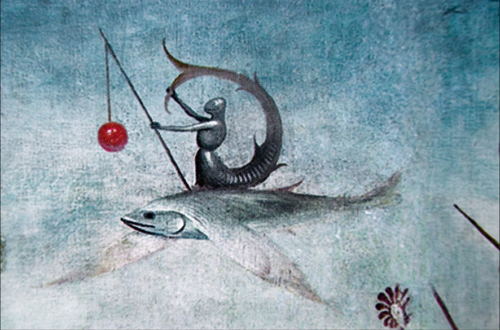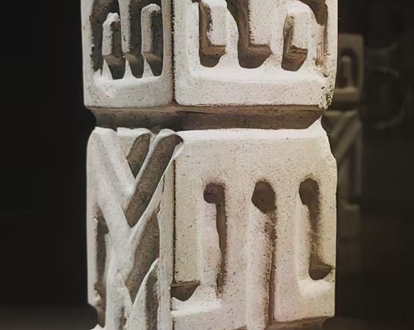Relational and Social Constructionist Consortium of Ecuador (IRYSE)
Maritza Crespo Balderrama, M.A. and Diego Tapia Figueroa, Ph.D.
It is known that relationships change over time and many times, we do not realize that we ourselves have changed.
Human beings are constantly evolving and that is evident in our interpersonal relationships, especially with our partners. Sometimes both peers can acknowledge some of their responsibility for the state of affairs. However, the tendency is to blame the other or assume that situations like this commonly happen and “will get better” without each person decisively intervening to generate changes.
There are habits that we can practice to maintain healthy couple relationships and promote individual growth, transforming them into spaces for meaningful dialogue, mutual enjoyment, and fulfillment as a couple.
What does “being a couple” mean?
Forming a couple, regardless of its duration, not only involves the decision to live together or share time; it is a significant step that will undoubtedly influence the present and future lives of the individuals involved in multiple ways. It begins with questions: What do we want? How do we want to live? What do we expect from each other, and what am I willing to give? These are questions we must ask ourselves, as the trajectory of our adult relationship will depend on the honest answers we provide.
The couple is made up of two individual people, who must coordinate and plan together to remain in a life project that is satisfactory for both. Therefore, it is essential to think about yourself and recognize your expectations and the emotional resources that we will put on the table to embark on the path together.
From this, it is always important to remember some habits that will make life more interesting, pleasant, and satisfying. Small daily acts, personal and joint decisions, based on the established objective which we must exercise every day.
I respect myself and my partner
Respect implies acceptance of oneself and the other, recognizing that the other is different, that they have their time, space, and way of thinking, and that it is not obligatory -as a couple- to think and feel the same. Respecting and accepting others is the door to knowing them and learning from them.
Communication and understanding are the basis of all relationships. We know that it is impossible not to communicate and that means that silence can communicate even more than words. Saying everything, respectfully, and with full confidence that it will be received kindly, is part of being in a relationship. Communicating correctly also means knowing how to argue with respect, serenity, and reason. Put on the table what we don’t like or think is important to change, instead of hiding it and keeping quiet. That the man allows himself to talk about his feelings and that the woman can express her fears and needs, helps to build solid and lasting relationships. Telling your partner your expectations with clarity (and updating them): what you want and what you don’t want, what you expect and need from the other, helps to have healthy and long-lasting relationships.
You have to know and use the language of love to understand each other and accompany each other with joy. Some research on couples states that all people have certain ways of feeling loved. It can be affirmative or assertive words, receiving details or gifts, prioritizing quality time, acts of service and dedication, or prioritizing physical contact. It is important to know the ways in which the couple feels loved in order to -in those ways- demonstrate the love you feel for him/her. It is not enough to say, “I love you.” It is essential that the other person feels that this is the case and that they feel loved in the way they need it.
Know that every relationship can end and what to do to take care of it
Many times, it is thought that because you are in a relationship, the relationship is “won.” Nothing further from reality. Relationships of this type must be worked on and strengthened day by day and, even with this effort, they can end. Being clear that every relationship can end also helps reduce the chances of building codependent and toxic relationships, in which each person invades the life and personal space of the other, wearing down and straining the relational environment.
Offering recognition and appreciation gives confidence and security. Letting the other know how much you love and value them is important. When relationships have been going on for a while, we tend to forget to say it or let it be known, even if we feel it. Keeping it in mind and saying it often can help maintain relationships over time.
Maintaining independence is vital. Although spending time as a couple is important, allowing yourself to build and write your own story is necessary, it nourishes the relationship. Being an independent person and having healthy boundaries makes it possible for relationships to last over time. It is about building and maintaining your personal space to bring renewed and different experiences, stories, and thoughts to the space that has been built together. Dependency generates, in turn, codependency. This happens when both of them depend excessively on the other; in the long run, this could become poisonous for the relationship.
Useful actions to improve the relationship:
Preserve couple spaces
Preserve the spaces as a couple. Above all, when it comes to families already formed, with children, it is very common for couples to lose the space they share alone. It is essential to develop common interests, moments in which you can share with each other and meet again. The time allocated to it is not so important, but the quality of that time, this means concentrating on the other, leaving your cell phone or work aside, and being completely there for your partner, enjoying and letting them enjoy.
Share family responsibilities
Understanding that there are no specific roles for women and men in a couple is essential if we want to keep the relationship healthy. That the man has a more leading role in taking care of the children and the home, and that the woman can fulfill herself professionally are aspects that must be cared for and maintained. Starting or maintaining a project together requires couples to assume responsibilities and share actions.
Cultivate a sense of humor
Trying to make humor present in the couple’s daily life is a good idea because this is a reflection of the intimacy and knowledge that each one has of the other. Living in an environment where there is room for laughter and complicity not only helps sustain the relationship but also speaks of the intelligence and sensitivity of the people who make up the couple.
Money management
Reaching agreements about money management helps maintain relationships. If as a couple you decide to place the money in a “shared account” and manage it together, the agreement must be respected; just as if the decision is that each person manages their money and pays certain bills. These agreements must be applied from the beginning and reviewed as necessary, in a kind and respectful manner that recognizes the needs of the couple.
The relationship with families of origin
Starting a relationship means starting a joint project. It is important to recognize and value the work that each person’s family of origin has done to shape the person who is part of this new relationship. However, healthy boundaries must be set between the family and the couple, so that there is respect and little interference in the decisions of both. A positive distance from families of origin helps maintain solid couples. Each person’s new family is the one they build together.
Fundamental agreements on the education of children
Other agreements that must be reached from the beginning of a relationship are those that have to do with the fundamental values and principles that you want your children to live by. It is not only about choosing the place where they will study but, above all, what criteria, attitudes and conceptions will govern the relationships that will be established with the children and what the overall expectations are for them. Parents (as a couple) give support in the «relational school», which teaches their children how to live, how to treat themselves, and how to treat others.
Do not focus the couple on the children
Although having or not having children is a decision that is made together, it is not the essence of becoming a couple. Focusing the couple’s life on the lives of their children generates an unnecessary burden on them. The life of each of the parents is the responsibility of the parents, and the permanence of the couple is something that does not concern the children. Many adults often repeat that children now have no limits. However, if the relationship works, if it is satisfactory for the couple, the limits for the children will be clear.
The intimacy
Active sexual intimacy is, without a doubt, one of the fundamental elements of having a healthy relationship. It makes the couple´s encounter possible and opens them to full contact. The more authentic pleasure for both of you, the better. This involves talking, knowing the other’s tastes, and also knowing how to say no when something is not to your liking or there is no desire. Knowing how to stop, continue, and give yourself enough time to explore with interest, helps maintain the chemistry and joy in the relationship. It is legitimate for the couple to enjoy an intimate relationship that is consensual and mutual between two adults, as long as it does not cause harm and brings happiness to both.
Have your own dreams and support your partner’s dreams
Supporting each other’s personal growth with spiritual depth, sincerity, flexibility, and enthusiasm adds consistency to the relationship. This mutual support establishes a sense of meaning and purpose in being together, allowing each individual to authentically be themselves and creating opportunities for a shared future.
(***) Authorized reproduction of the publication of the Magazine Maxi Online
https://www.maxionline.ec/creando-una-relacion-constructiva/

English translation by Bruno Tapia Naranjo.



